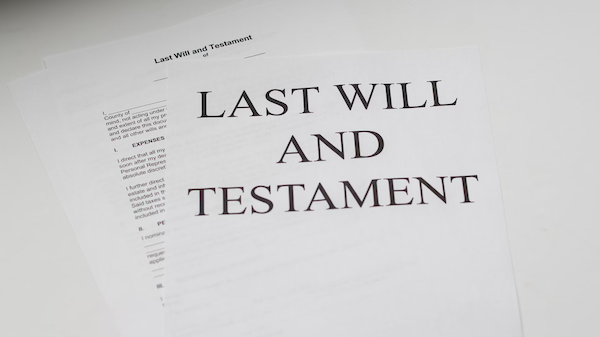Creating a last will is a crucial aspect of estate planning that ensures your assets are distributed according to your wishes after passing. One of the most important decisions when drafting a will is determining who should be entrusted with this responsibility.
While various options are available, such as hiring a lawyer or using DIY will kits, the question remains: Who is the best person to draw up a will? We’ll guide you to the different options and considerations to help you make an informed decision.

1. Hiring a Lawyer
One of the most common and widely recommended options for drafting a will is to hire lawyers or attorneys like inheritance dispute lawyers. Legal professionals bring a wealth of knowledge and experience to the table, ensuring that your will is legally sound and conforms to the specific laws of your jurisdiction. Here are some reasons why hiring a lawyer might be the best choice:
-
- Expertise: Lawyers specialize in estate planning and are well-versed in the complexities of wills and probate. They can offer expert guidance and ensure your will accurately reflects your wishes.
- Customization: Lawyers can tailor your will to your unique circumstances, addressing specific concerns and providing personalized advice.
- Legal Requirements: Ensuring your will complies with state or regional laws is crucial. Lawyers can navigate these regulations effectively, reducing the risk of potential disputes.
- Complex Estates: If you have a complex estate, including assets in multiple jurisdictions or businesses, a lawyer can help navigate the intricacies of estate planning.
- Peace of Mind: Having a legal professional manage your will can bring peace of mind, minimizing the chances of mistakes or oversights resulting in later disputes.
2. Using Online Will Services
In recent years, online will services and DIY will kits have become increasingly popular due to their convenience and affordability. These services offer templates and guidance for creating a will without a lawyer. However, there may be better options for some. Here’s what you should consider:
-
- Simplicity of Estate: Online will services are more suitable for individuals with relatively straightforward estates. Consulting a lawyer is a better choice if you have a complex financial situation or unique wishes.
- Risks of Errors: DIY will run the risk of errors or omissions that can render the document invalid or lead to disputes among beneficiaries.
- Limited Legal Guidance: While online services can provide templates, they often need more personalized legal advice and expertise that a lawyer can offer.
- Jurisdictional Differences: Estate laws vary from state to state and country to country. Online services may need to adequately address the specific laws applicable to your situation.
3. Utilizing a Financial Advisor or Accountant
Some individuals work with financial advisors or accountants to draft their wills, especially if they have a close relationship with these professionals. While financial experts can provide valuable insights into the financial aspects of estate planning, they may not be the best choice as the sole drafter of your will. Here’s why:
-
- Limited Legal Expertise: Financial advisors and accountants may need legal knowledge to ensure your will complies with all legal requirements.
- Complementary Role: They can be valuable contributors to your estate planning team, working with a lawyer to address financial and legal aspects.
- Risk of Conflicts of Interest: Potential conflicts of interest could exist if your financial advisor or accountant benefits from your will.
On A Final Note
There is no one-size-fits-all answer when deciding who is best to draw up a will. The choice depends on your unique circumstances, preferences, and the complexity of your estate. Hiring a lawyer is often the safest and most comprehensive option, as they bring legal expertise, customization, and peace of mind to the process.
Online will services can be suitable for more straightforward estates but may need a lawyer’s personalized guidance and legal assurance. Financial advisors and accountants can complement your estate planning team but should not be relied upon solely for will drafting due to their limited legal expertise.
Read More:

